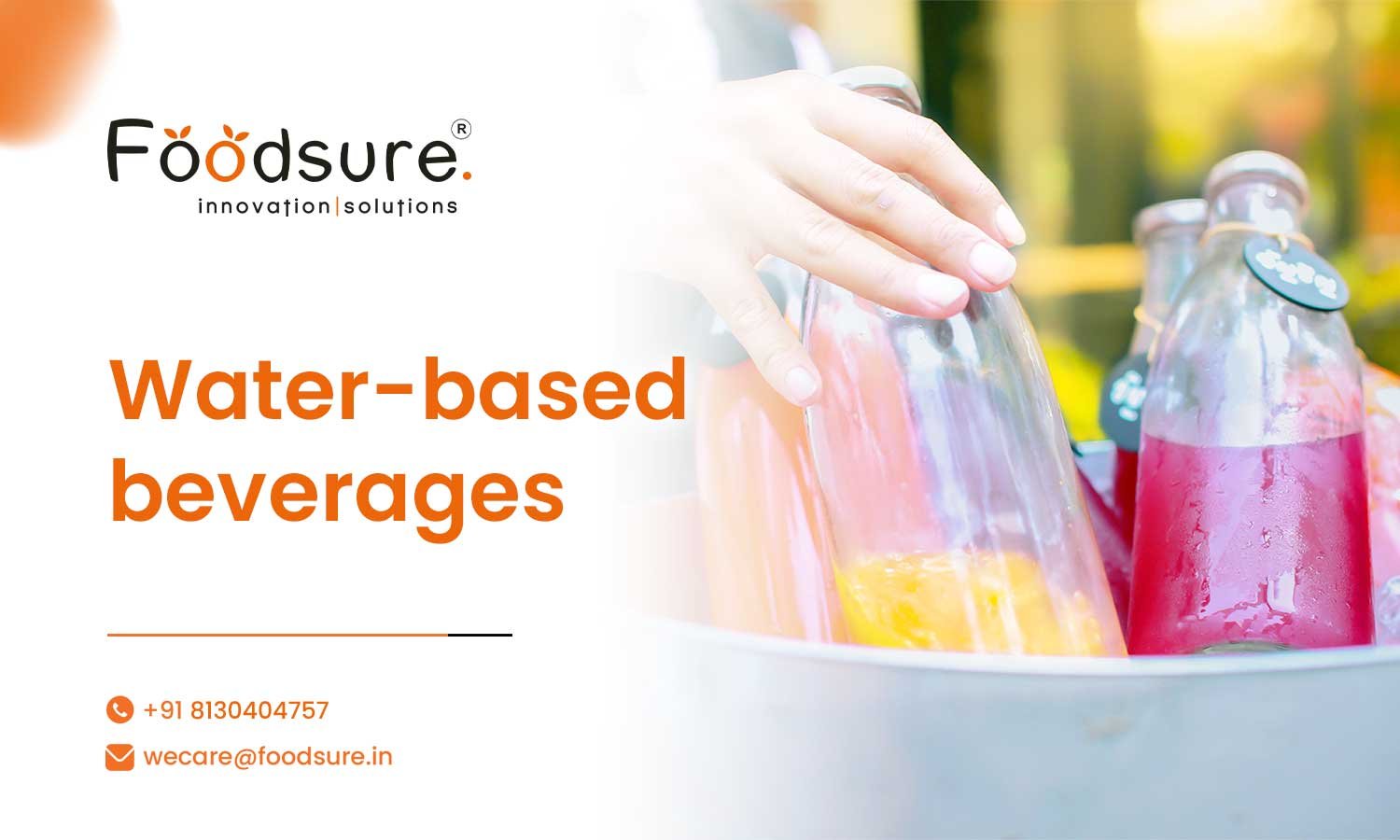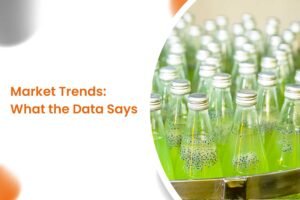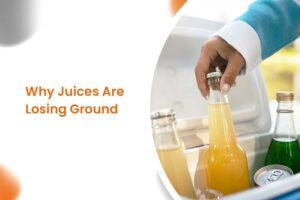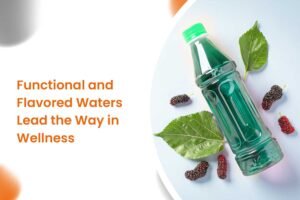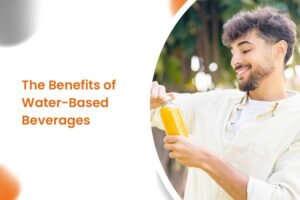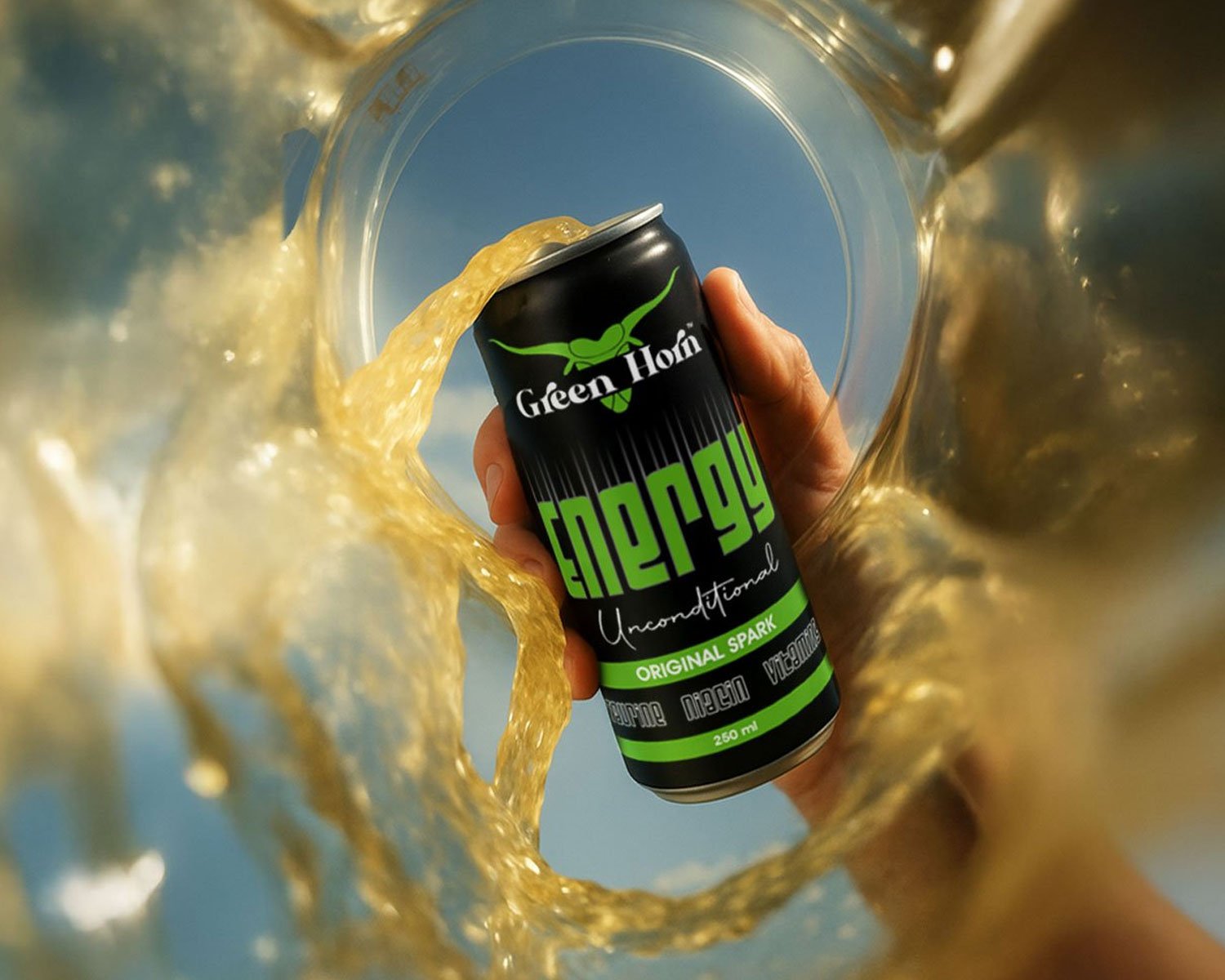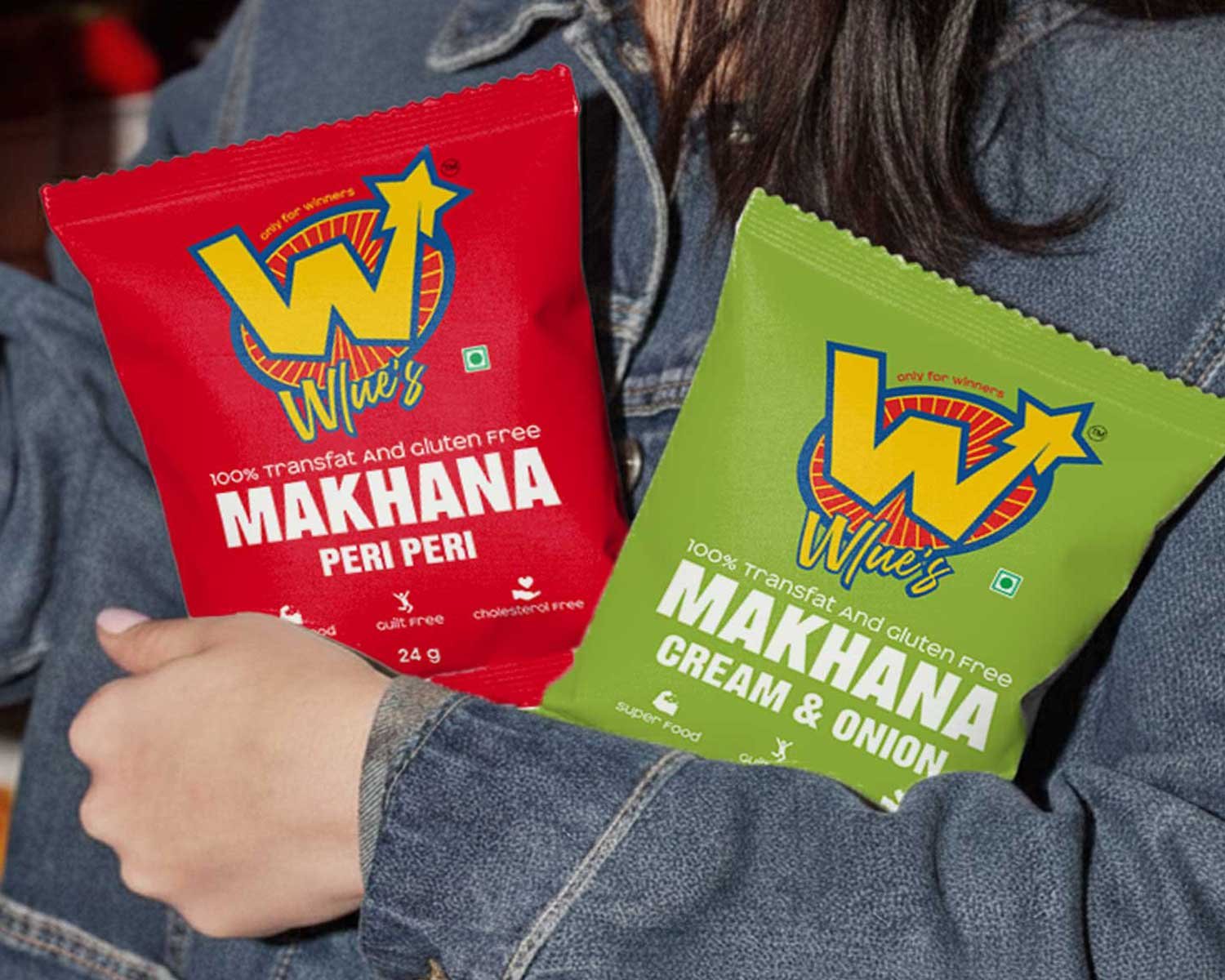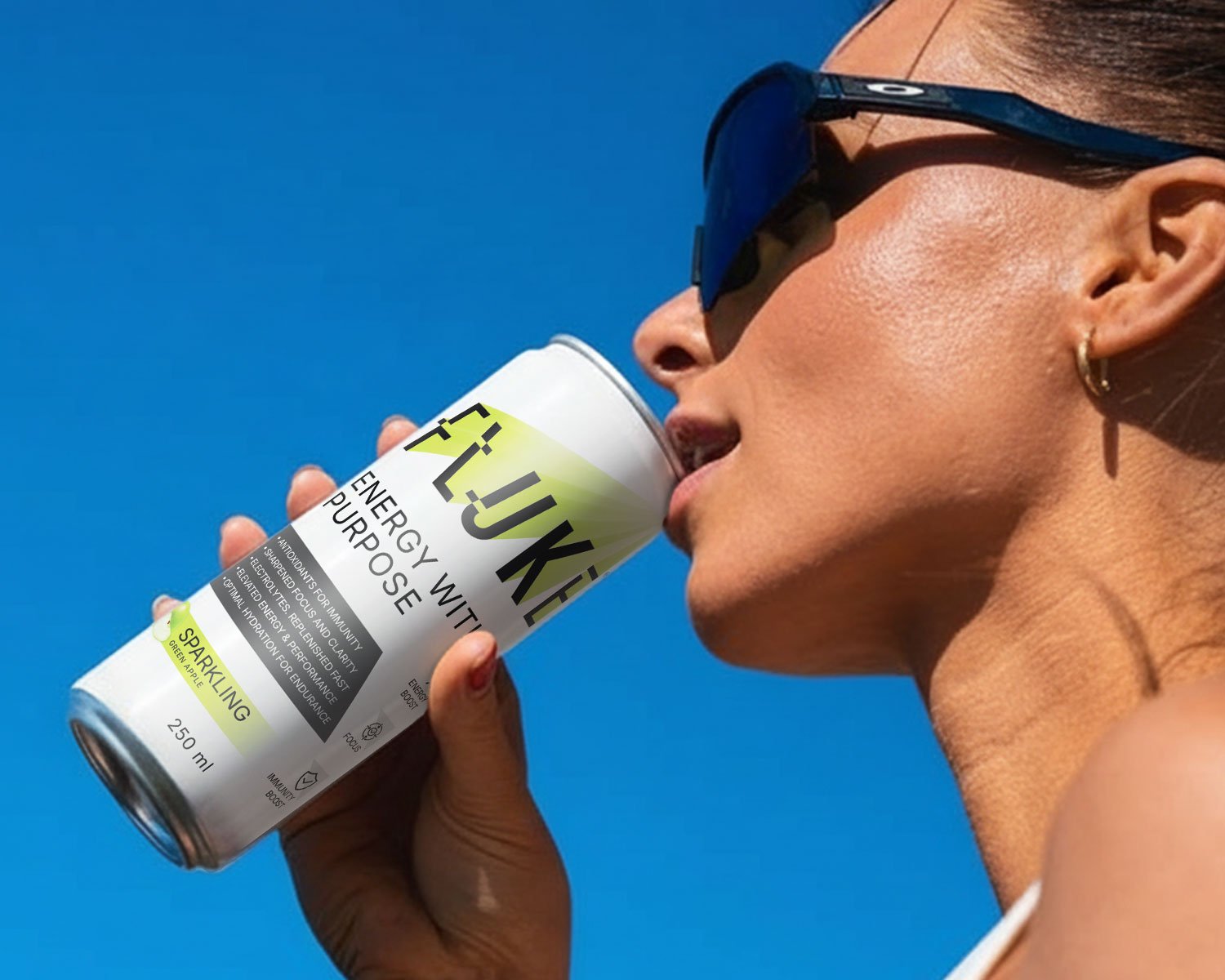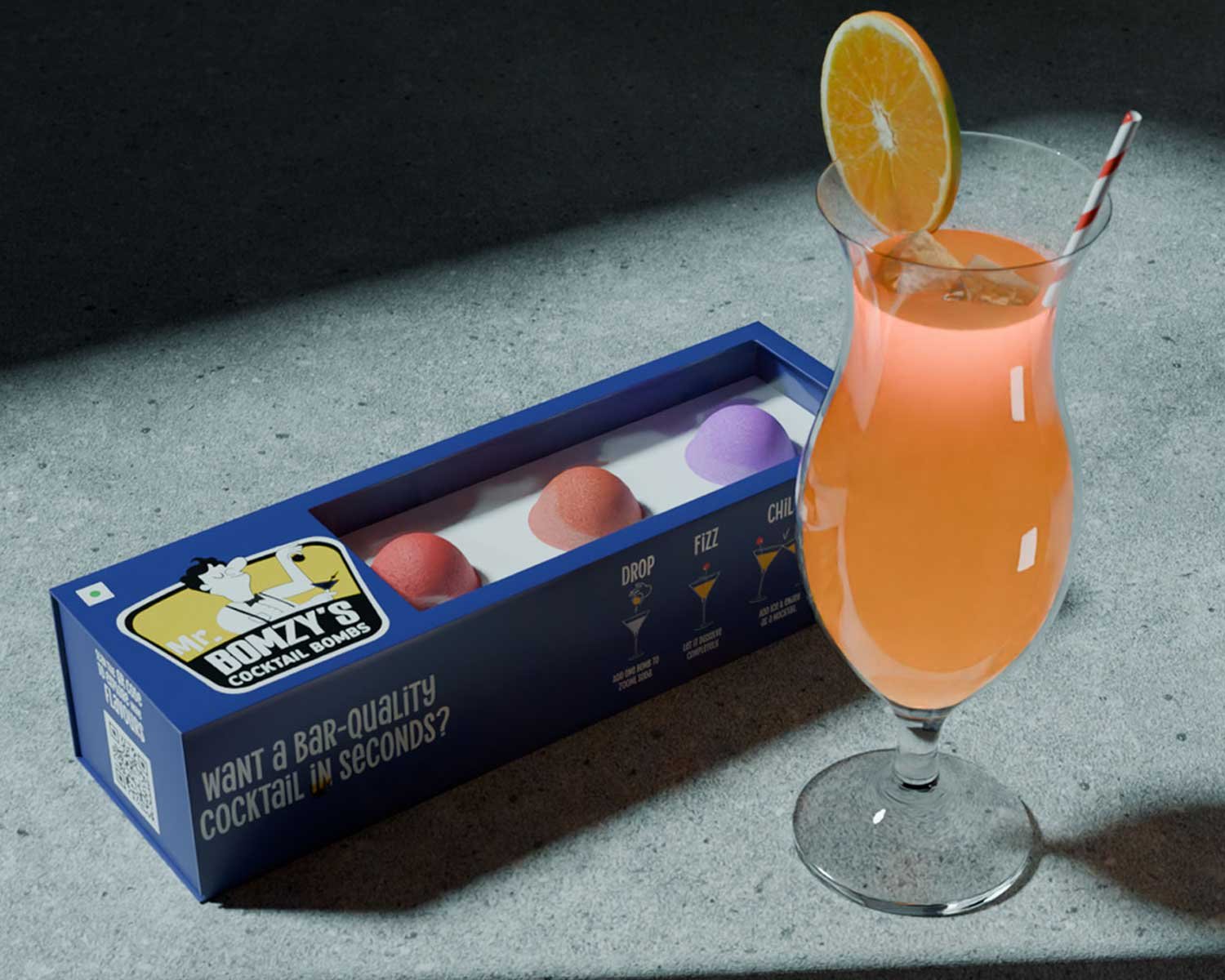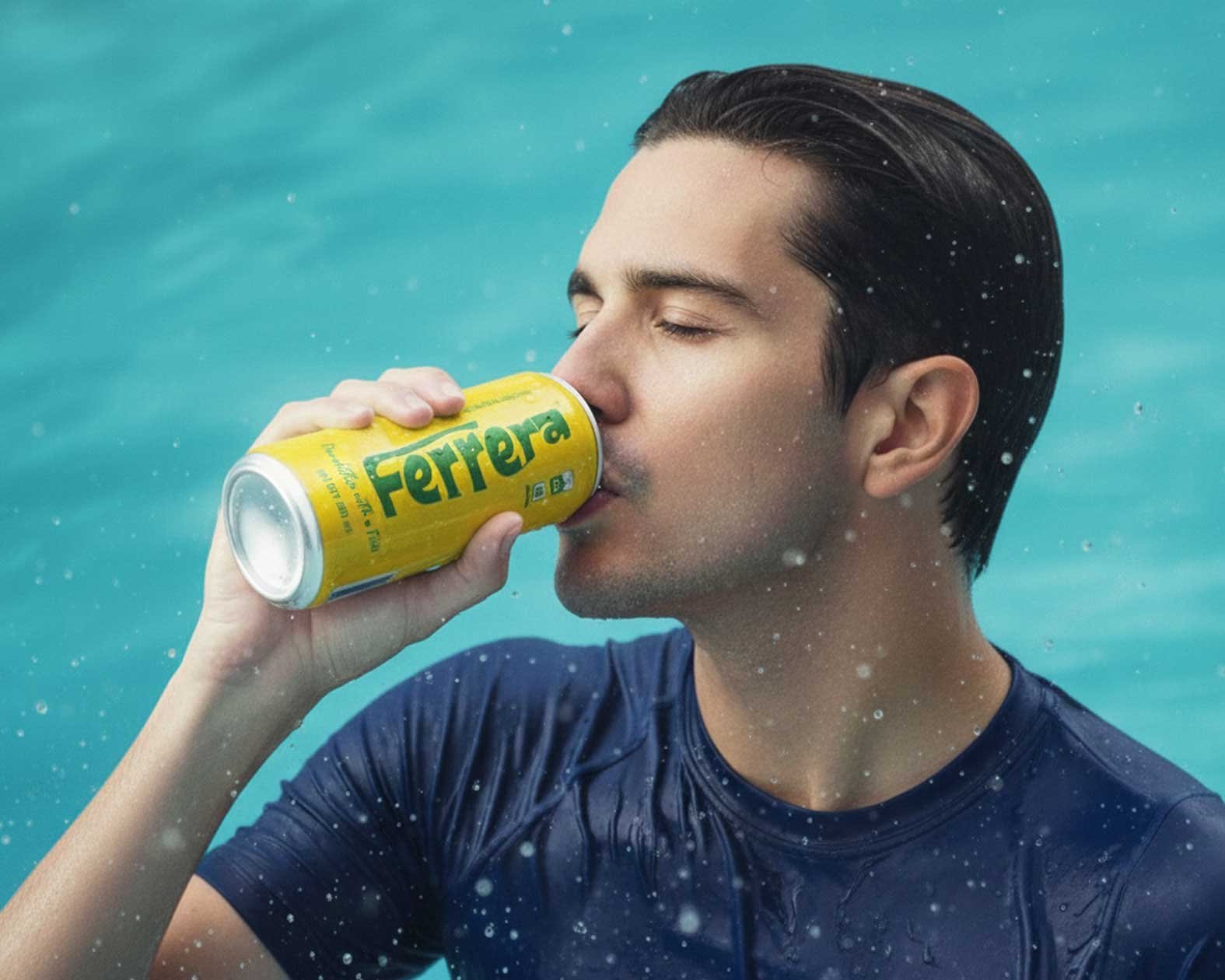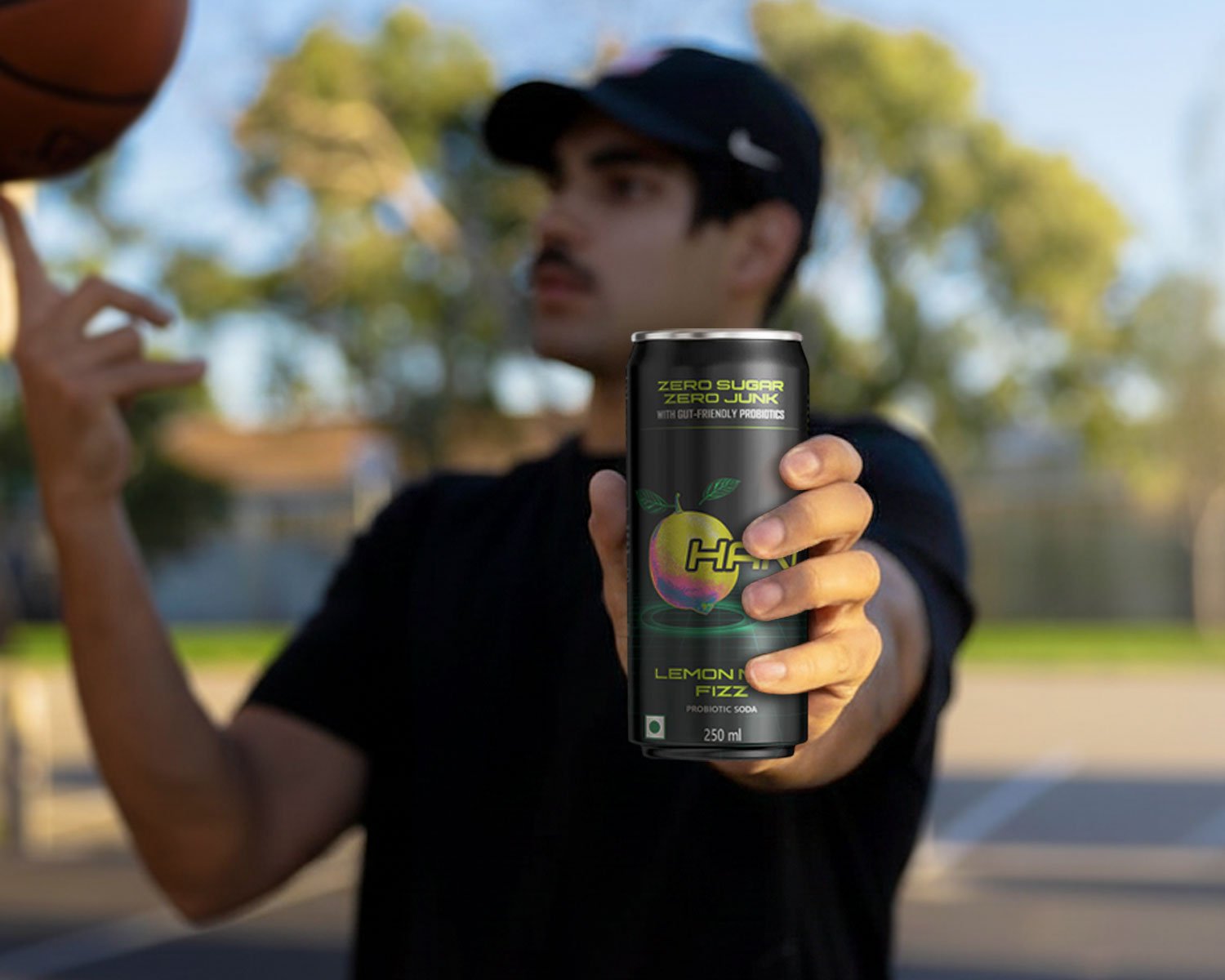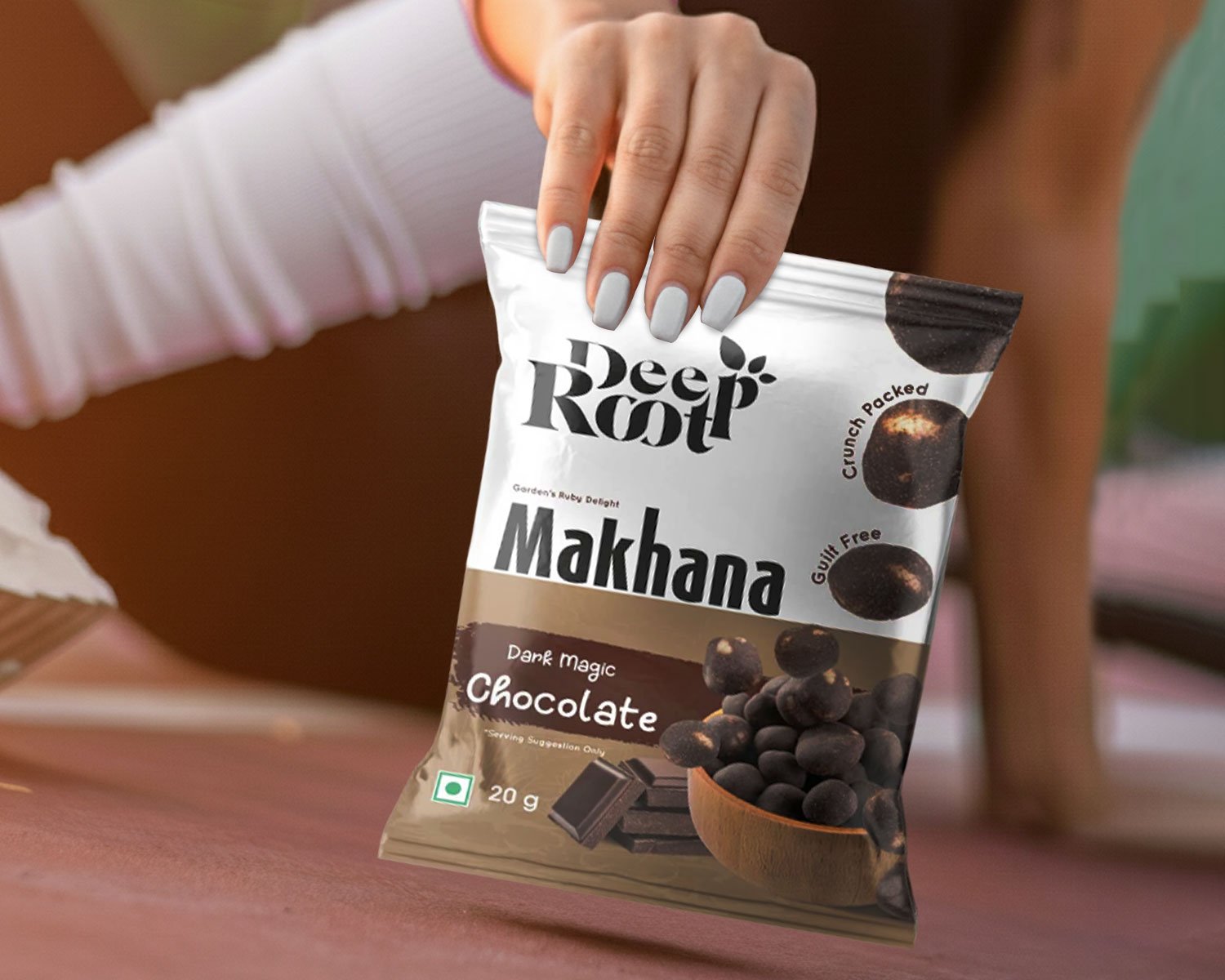Welcome to 2025-26, the year of innovative solutions in the food and beverage market segment. Something big is happening in the world of drinks, quietly but powerfully. The spotlight’s now on water-based beverages—and no, we’re not just talking about “fancy flavored water.” These are clean, functional drinks packed with real stuff your body actually wants: think hydration + purpose in every bottle. Vitamins, herbs, electrolytes, adaptogens—you name it.
So, why are brands walking away from sugary juices?
With changing years, consumers Because people aren’t buying just for flavor anymore. They’re flipping bottles, checking labels, asking:
- “Is this good for me?”
- “Does it support my energy, mood, or focus?”
Juices = sugar highs and empty calories.
Water-based drinks = clean, conscious, feel-good hydration.
Market Trends: What the Data Says
- See what market reports say and how data speaks volumes. The global functional water market is expected to reach $18.2B by 2026, growing at over 18% CAGR.
- In India, flavored and enhanced water sales rose by 29% YoY in 2024, according to NielsenIQ.
- Brands like Himalayan Organics, Fast&Up Hydrate, and Oxyrich are expanding their water-based functional lines.
Why Juices Are Losing Ground
No flavor juices anymore; the choices have changed, and people want low-sugar drinks. Do you want to know why? Here’s why juices, especially packaged ones, are slowly falling out of favor. Disclosing the secret parts here:
- Too Much Sugar: Even “natural” fruit juices can carry up to 25g of sugar per serving.
- Low Functional Value: Aside from basic vitamins, juices often lack functional benefits like electrolytes or adaptogens.
- Short Shelf Life: Juices are harder to preserve naturally, increasing the need for additives or pasteurization.
- Not Clean-Label Friendly: Many commercial juices contain concentrates, preservatives, and unclear sourcing.
Data Insight: A 2024 Mintel report showed that 42% of consumers aged 18–35 are reducing juice intake due to sugar concerns.
Health-Conscious Consumers Are Reassessing Sugar Intake
One big reason juices are losing their shine? Too much sugar.
They look healthy, but most people don’t realize that a glass of juice can have as much sugar as a soft drink. For example, one glass of orange juice can pack 20–25 grams of sugar — that’s almost your full day’s limit in one go!
Now, people are getting smarter. They’re reading labels, checking for sugar content, and looking for better options. That’s where water-based functional drinks come in. These aren’t just hydrating — they often come with extra benefits like vitamins, minerals, probiotics, or antioxidants… and way less sugar (sometimes none at all!).
Drinks labeled “low-sugar drink,” “no added sugar,” or “zero-calorie” are now flying off the shelves — because people want hydration that helps them, not harms them.
Juice Prices Are Rising — and So Are Expectations
Juices are getting expensive, and climate change is part of the problem.
Because of extreme weather and shifting seasons, fruit crops are struggling all over the world. That means less fruit, and of course, higher juice prices. At the same time, many people are watching their wallets more closely and choosing drinks that are healthier and more affordable.
That’s where water-based drinks are winning. They’re cheaper to make, easier to store, and lighter to ship, which means brands can sell them at better prices. And for consumers, it’s a total win: they still get great taste and real benefits without paying a premium.
No wonder more and more brands are shifting their focus to smart, water-based beverage innovation.
Functional and Flavored Waters Lead the Way in Wellness
Consumers want beverages that work hard for them. From electrolyte-infused waters for fitness recovery to herbal and vitamin-enhanced drinks for immunity and focus, there’s an exploding range of wellness beverages that cater to specific health goals.
Some of the most popular water-based drinks in 2025 include:
- Coconut water with added electrolytes helps restore lost minerals like potassium and sodium after workouts, supporting muscle recovery and hydration balance.
- Sparkling waters with botanicals such as lavender or elderflower may offer calming effects, thanks to their natural plant compounds.
- Prebiotic waters contain fibers like inulin or chicory root that feed healthy gut bacteria — a key factor in digestion, immunity, and mood.
- Detox waters with lemon and ginger can aid digestion and provide antioxidants, while activated charcoal may help absorb unwanted toxins (though best used occasionally).
These are all clear examples of how water-based beverages dominate the modern wellness shelf.
The Benefits of Water-Based Beverages
Let’s take a closer look at why so many consumers are falling in love with flavored hydration drinks and functional water.
1. Low in Calories, High in Hydration
Unlike juice, which can be calorie-dense, most water-based beverages are low-calorie or even calorie-free. They’re ideal for people watching their weight or managing health conditions like diabetes or high blood pressure.
2. Better for Digestive Health
Water by itself already supports digestion, but enhanced hydration drinks go even further. Some come with prebiotics and probiotics, supporting a healthy gut microbiome — a factor that’s increasingly linked to everything from mental clarity to immune function.
3. Convenient and Customizable Wellness
With life getting busier and stress levels rising, people want solutions that fit into their fast-paced routines. Ready-to-drink water beverages offer quick hydration and wellness support without meal prepping or remembering supplements.
Plus, with so many flavored waters and functional choices available, consumers can personalize their hydration based on taste or health goals, helping increase overall water intake in an enjoyable way.
Water-Based Drinks vs Juices: The 2025 Comparison
| Feature | Water-Based Beverages | Traditional Juices |
| Sugar Content | Very Low or Zero | High (Natural/Added) |
| Hydration Quality | High | Medium |
| Functional Add-ons | Easy to Integrate | Limited Options |
| Shelf Stability | Higher (w/ natural aids) | Lower |
| Market Growth Rate | 📈 +18% CAGR (2024–26) | -6% CAGR (2024–26) |
| Consumer Appeal | Wellness-focused | Decreasing |
Smart Ideas for Water-Based Beverage Formulations
If you’re planning to develop a new product, here are some water-based beverage formulation ideas:
Idea 1: Electro-Herb Sparkler
- Base: Coconut water + purified water
- Add: Lemon juice, Tulsi extract, electrolytes
- Use: Post-workout hydration
Idea 2: Calm Water Tonic
- Base: Still water
- Add: Ashwagandha + chamomile + magnesium
- Use: Evening or stress-relief drink
Idea 3: Focus Water Shot
- Base: Alkaline water
- Add: L-theanine + green tea extract + lion’s mane
- Use: Cognitive support or productivity
These formulations are light, label-friendly, and trending across global markets.
Brands Are Paying Attention — Big Time
Beverage giants and startups alike are noticing this shift from juice to functional hydration drinks and are responding in smart ways:
- Coca-Cola has scaled back on less popular juice brands and turned toward enhanced waters.
- PepsiCo has expanded its range of life water and sparkling waters.
- Health-driven startups are leading the pack with unique ingredients, sustainable packaging, and minimalist branding that appeals to Gen Z and millennials.
The key strategy for many of these brands is providing functionality plus flavored water — a win-win for today’s demanding drinkers.
Water-based beverages: The Role of Sustainability and Clean Ingredients
Let’s not forget — modern consumers care deeply about both health and sustainability. This is another area where water-based drinks outperform juice.
- Water-based beverages often contain simpler, more natural ingredients with fewer artificial additives.
- Since they require less processing, they typically have a smaller environmental footprint.
- Many are packaged in eco-conscious options like reusable bottles, compostable pouches, or recyclable cans.
This makes it easy for consumers to make choices that align with their values.
Will Juice Disappear?
Not really. Juices are not going away completely, but they’re not something people want to drink every day anymore. Fresh or cold-pressed juices still have their place, but now they’re more of a once-in-a-while treat or a special health boost.
That doesn’t mean time is over. Many smart brands are creating a middle path, like water with a splash of juice. These drinks give you the light, refreshing feel of water, plus just a little fruity flavor and extra health benefits. So yes, innovation is there with fruit juices.
What This Means for Beverage Entrepreneurs
Here is the opportunity for all the beverage entrepreneurs. Whether you’re building a D2C wellness drink or a retail-friendly RTD beverage, water-based drink products offer:
- Faster development cycles
- Lower sugar taxes and cleaner labels
- Global compliance ease (UAE, EU, US markets prefer low-sugar drinks)
- Cost-efficient production, especially through contract beverage manufacturers in India
Final Thoughts: Quiet Power, Loud Impact
Water-based beverages may be quietly taking over the drink aisles, but their impact in 2025 is loud and clear. Consumers are demanding healthier, more functional, lower-sugar beverages — and brands are responding with innovation, precision, and purpose. The rise of water-based beverages is one of the most exciting trends you can get behind this year.
So the next time you reach for a drink, skip the sugar-heavy juice and instead flow with the future — a world where water-based drinks formulation, wellness is the new normal.
Need Help Building Your Own Water-Based Drink?
Partner with Foodsure for excellence, we help brands:
- Develop custom recipes
- Source functional ingredients
- Micro-batch & test market drinks
- Manage full-scale contract manufacturing
Let’s chat over water, not juice: +91 8130404757

